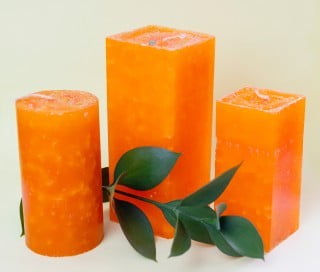Feng Shui is an ancient Chinese practice focused on optimizing the flow of energy in any given space. According to this belief system, energy or “chi” can be raised or lowered based on different elements of the environment, such as furniture placement, natural light flow, and even house numbers. The concept of connecting numerology to Feng Shui stems from the understanding that different numbers produce distinct vibrations which uniquely influence a home’s energy and our well being.
The Chinese language itself places a special emphasis on number symbolism and divination as each number carries unique meaning. By considering what each house number means according to this symbolized language in the context of Feng Shui principles, it’s possible to make resonance with certain energies within the environment to bring good fortune or prosperity.
In terms of understanding house numbers meanings for Feng Shui, most believe that odd numbers are connected to masculine/yang energies while even numbers have feminine/yin connotations. For example, house number 8 is often seen as particularly auspicious according to Chinese superstitions traditionally associated with longevity and wealth; 8 symbolizes an abundance of earthly treasures as two circles representing yin and yang intersect at its center.
Similarly Number 4 is historically regarded as inauspicious because both sounds and numerological meaning denote death. To minimize negative implications, people sometimes adapt by assigning partners with similar consonants (e.g., using 16 instead of 4).
Additionally, particular numbers have symbolic translation into Eastern culture beyond mere sound pronunciation; for instance, 6 represents smooth sailing while 7 implies mystery and intrigue however each will raise or lower energy levels differently depending on other numbers in association with it (for example 9006 says much more than 6 alone).
Ultimately though when determining specific numbers meanings for house numbering arrangements from a Feng Shui perspective it’s essential to take into account all associations based on sound vibration colors current trends (not just things like whether a number is odd or even) – combined they create a powerful synergy conveying specific meaning about those who live there plus their many potential opportunities therein.
The History and Foundation of Feng Shui House Numbers
Feng Shui is an ancient Chinese practice rooted in the belief that housing space contains energetic forces that can directly affect residents and their well-being. In this belief system, house numbers, among other elements of design, are seen to exert a big influence on a home’s overall energy balance. From its earliest history, Feng Shui has used house numbers for divinatory purposes, imbuing symbols and numeric energy with far greater power than the mere marker of address.
Symbolically speaking, many numerologists believe that the energy associated with each number narrates a story about the occupants of the specific house and how they choose to live. For instance, in Feng Shui tradition, number 8 is referred to as a money number that can bring abundant wealth and good luck when in close proximity to buildings or households.
Additionally, modern homeowners use this system of personalizing certain symbols when selecting their house numbers in order to furnish their houses with positive energy.
Ultimately, regardless of which interpretation one follows, Feng Shui’s rich heritage exists for those eager to unlock its mysteries. For those who wish to make meaningful connections to their residences through symbolism or gain insight into how energies work inside the home environment; using house numbers as divine messages from beyond has been practiced for millennia and continues today among practitioners seeking insight into their basic conditions of life and outlook for the future.
There may not be any exact way to ascertain if house numbers have Qi properties attached presently but their utilization by Chinese cultures in previous time speaks volumes concerning its importance within traditions like Feng Shui even now.
Uncovering the Components and Detailed Symbology of House Numbers
Feng Shui principles suggest that the house numbers may be associated with powerful frequencies, harmonics, and specific intentions. It is believed that numbers hold meaningful energy which can affect how inhabitants of a home live and prosper in their lives. There are many components to look at when uncovering this system.
- Lucky Numbers: Every number is considered as having lucky or positive properties associated with it for house numbers. Numerology suggests that the vibration of the address number affects its energetic frequency.
- Positive Vibrations: The higher vibrations of certain numbers attract positive elements into life, while some lower vibrations may bring temporary or prolonged difficulties for occupants.
- Unlucky Numbers: Some countries believe in certain numbers being unlucky, like number 4 in China which signifies death. So much so that they avoid it completely and replace them with another combination like 8-4-7 instead of 4-8-7.
Consulting experts in numerology helps individuals find out an auspicious address they can attach to business ventures like shopfronts or offices, since these houses directly represent wealth building opportunities. After all, the “address” affects the household income and business success. Care should be taken to ensure you select a good Feng Shui house by picking one with pleasant harmonic vibrations from its address number.
In many cultures around the world, odd numbers signify Yin energies and even numbers signify Yang energies; meanwhile Feng Shui considers 5 and 9 to be especially auspicious digits as they represent balance and unity respectively. Furthermore, distances must also be taken into account such as keeping far away from negative or unlucky landmarks such as cemeteries or firehouses which might reduce individual luck potential.
- Four – Representing earthbound power, bad luck, death (in Chinese culture)
- Five – Representing balance
- Six – Representing family relationships
- Eight – Representing abundance/wealth
- Nine – Representing unity/completion
Assessing the Positive Factors of House Numbers
House numbers can have a major effect on the lives of those who live there. Many believe in the practice of feng shui and its effects on energy and harmony in the home.
But what does it mean when certain numbers dominate when it comes to house numbers? Here we will discuss the positive aspects of different house number meanings from a feng shui perspective, helping you to understand how they create balance and well being for your home and family.
When analyzing house numbers, numerology is used as a way to assess the energy it can bring into your home. The powers assigned to each individual number has been used for centuries as an interpretation system based upon ancient beliefs and philosophy. Some of the most common numbers associated with good luck are 4, 8, and 9 which are thought to represent restful personal power, wealth accumulation, and community relationships respectively.
For example, in feng shui tradition 4 is considered a powerful number due to its representation of boundaries-essential within making new beginnings. It is believed that 4 brings stability into one’s life thereby contributing towards a deeper sense of security in both physical location as well as emotional comfort.
As an added bonus 4 also represents strength so inhabitants with a house number containing this number are encouraged to make use of its potential stability for confident progressions in life such as launching new business ventures or starting larger projects.
Feng shui adherents also associate 8 with success by encouraging powerful qi energy leading towards accomplishments like financial long-term wealth flow, lasting good health, improved self-esteem, increased finesse and tact when interacting with others, etc This number works best when incorporated in multiples found throughout the building both inside and out (such as 8888).
Furthermore because 8 has multiple interpretations it allows homeowners more flexibility when planning their own unique path involving long-term desires while keeping safety barriers between themselves and any unwanted visitors or intrusions.
Last but certainly not least 9 has been connected with longevity since it’s symbolized by eternity circles symbolizing endless supply sources-a demand required for creativity achievement acceleration within growth oriented communities-thereby connecting inhabitants with kindness overall feelings attainment support systems required for life successes attainments without friction. By embodying these positive traits along with others such 9 grants individuals stronger communal ties helping them establish respectful connections aiding them every step along their journeys.
As you can see house numbers wield great influence over our prosperity; however understanding how particular components interact cultivating interpersonal security is key achieving optimal ‘feng shui’ situations-so without delay be sure review existing efforts optimize interior living standards witness pure brilliance start appearing surrounding regions today.
Exploring the Meanings and Common Symbols of Each Number
Feng Shui is an ancient practice believed to bring luck into the home. Most people become aware of the practice when they try to find ways to ensure security and well-being within their homes. In this context, understanding the symbology associated with each house number can help bring balance and harmony into your space.
One way that Feng Shui practitioners use house numbers is by assigning metaphorical meanings to numerals. Each numeral in a person’s address carries its own symbolism that should be taken into consideration when attempting to tap into a space’s existing energy flow:
- Number 1 – It represents the beginning of all things, innovation and new opportunities.
- Number 2 – Considered more productive than “1” because it stands for co-creation and support from others.
- Number 3 – Its main representations are ‘growth’, ‘happiness’ and ‘development’.
- Number 4 – An unlucky number due to its associations with death – often seen as associated with hardship.
- Number 5 – Symbolizes change, progress, health & safety; called the ‘Most Powerful Number’ in Chinese culture.
- Number 6 – Represents creativity, relationships & friendship; it stands for stability & grounding.
- Number 7 – Associated with success in business ventures, energy healing & spiritual awakening.
The exploration of numbers within Feng Shui isn’t limited only to house numbers though. Number 8 holds special meaning in this system because of how much it’s associated with wealth and abundance potential. It symbolizes infinite possibilities open up once a person invites balance into their life through acceptance of their current situation.
It relates directly to abundance mindset thinking as eight symbolically represents exponential growth beyond what could be expected without considering all possible angles involved in a certain situation. A house with the street number “8” resonates particularly good vibrations designed for prosperity. One common belief is that having this number around will improve your finances if you practice living an abundant lifestyle.
Furthermore there are diverging opinions on many other numbers such as 13 which is considered slightly negative because in Western cultures it is known as an unlucky number whereas some Asian cultures look at 13 as representing protection from evil spirits or energies thus creating positive vibes when tagged at your front door.
Theseviews just go to show that there is no single truth about any particular number but rather relativism based on one’s own experiences and cultural background playing a major role in shaping them towards various interpretations.
Analyzing How to Interpret House Numbers Through Feng Shui
Feng Shui is an ancient Chinese practice of designing a living space to promote life balance and positive energy. It has become increasingly popular for homeowners who want to incorporate this philosophy into their homes, including the number assigned to their front door. The numbers do have special meaning-in fact, they can be used as a tool to determine what blessings and challenges may come with a potential home.
- Every house number carries a specific feng shui vibration
- The main energies associated with house numbers are:
The first type of vibration that’s associated with the house number is the cardinal energy. Numbers like one, two, three, six, eight and nine represent leadership, ambition and movement.
These numbers are considered yang in nature and provide strength in family bonds, wealth enhancement opportunities as well as spiritual growth potential. Because these numbers are so powerful it’s important to direct them in positive ways – i.e., choose colors and décor that wisks away bad Qi (energy) and supports long-term success.
The second type of energy associated with house numbers is the harmonic vibration which carries peacefulness, acceptance and inner wisdom force. Number four implies security while five stands for creativity – both offer especially strong opportunities for transformation when combined together harmonically in a supportive atmosphere created by understand qi flow principles of Feng Shui.
The last type of feng shui vibrations associated with house numbers are the balanced energies found between seven or ten and eleven or twelve. These numbers indicate receptivity where ideal conditions for communication – such as stability or challenge – exist naturally within the structure of your home environment that support both physical health as well emotional well-being when suitable light fixtures/colors shades/objects/symbols are present to carry your wishes into existence.
- Cardinal Energies – 1,2,3,6,8 & 9
- Harmonic Vibrations – 4 & 5
- Balanced Vibration – 7 & 10; 11 & 12
Examples of Enhancing House Numbers in Different Types of Homes
Feng Shui is an ancient practice often used to create balance and flow in a space. It can also be used to transition and enhance different types of homes by establishing good luck and inviting positive energies.
One way Feng Shui is used to create harmony in the home environment is through house number meanings associated with various numerical values. Using these numbers as part of the décor or structure, a homeowner can promote different traits relevant to their home’s character and personality.
For instance, if a homeowner wants to strengthen the energy of their family’s connection, they will use a 6 for their house number. This is based off Chinese numerology which reads 6 as “Zhāng” – meaning leadership and strong bonds between family members or relationships within the traditional home setting. Additionally, 8 can be used for wealth with its literal meaning meaning “Bā”, standing for increased financial fortune and security.
If this particular house seeks new financial opportunities, hanging up the house number above the entrance would be very beneficial. Finally, using 2 for the house number could represent potentiality with its definition of “èr” symbolizing long-term success when it comes to businesses or launching new projects out from that space – perfect for entrepreneurs looking forward to a productive season in their office at home.
In modern living spaces such as condominiums, apartments and even lofts design statement pieces are important for diverting energy throughout the living area while also manifesting luck into one’s life. Painting one’s house number on metal plating or laser cutting into big wood block letters accentuates this spot location extremely well – injecting that room with a powerful statement encased within meaningful numerology symbols buzzing with alluring energy fortune.
Hanging calligraphy banners including signs like Double Happiness (囍) amidst 4 (si 四) house numbers further bring out life character filled with happiness amongst family members while accommodating growth and development at the same time too.
Conclusion
The practice of Feng Shui has been around for thousands of years, and it is still popular today. It can be used to bring balance into the home environment and improve the harmony of the people living in it. One important element of Feng Shui is understanding house numbers and their meanings.
House numbers represent energies that are associated with different aspects of life, such as luck, wealth, health, and peace. If homeowners use these numbers in their approach to Feng Shui they could reap greater benefits, often faster than if they did not understand key insights about them.
House number meaning is based on the idea that each number has certain frequency or vibration associated with it. The best feng shui house numbers are going to feature balanced vibrations from different numbers that interact correctly. Additionally, there are other related considerations like repetition of specific numbers or numerical sequences as well as considering energy represented by unique letters/words inside a residence’s address. Each element influences the overall energy within a house and its inhabitants.
Feng shui experts agree that having an understanding of how to interpret house numbers and what impact they have on vibes within residences yields positive returns in terms of benefiting occupants’ living conditions.
Whether one implements Feng Shui practices without consideration to numerology or takes a systematic approach using information derived from understanding the correlations between energy frequencies and numeric values assigned to various addresses can influence areas such as relationships and finances; ultimately, such knowledge could lead to increased harmony at home along with greater prosperity for residents too.

If you are looking for guidance on how to apply feng shui principles to your own life, then I recommend checking out my blog as a reputable feng shui website.





